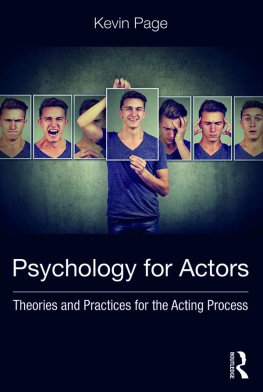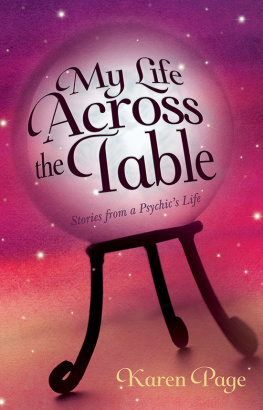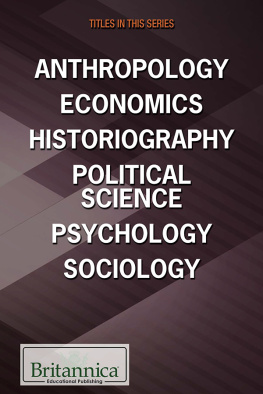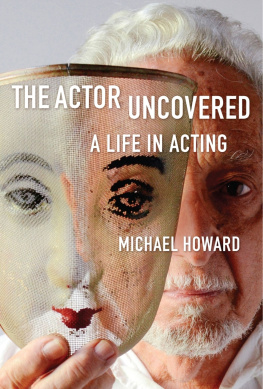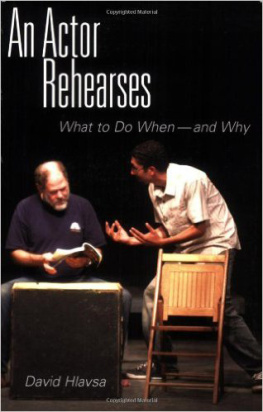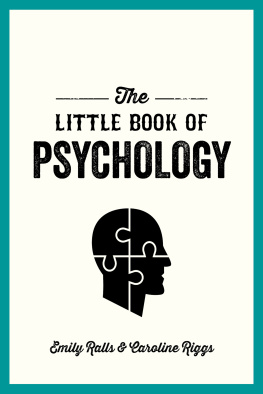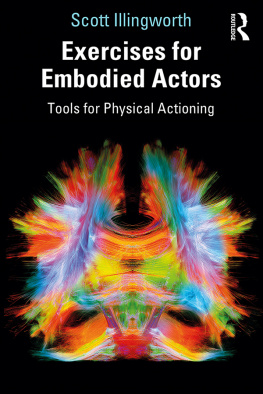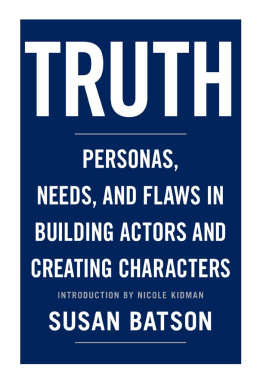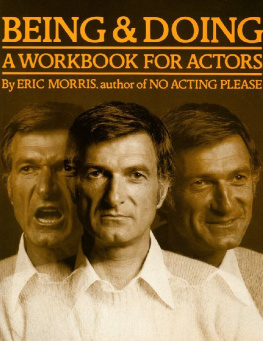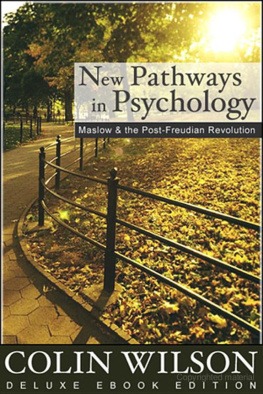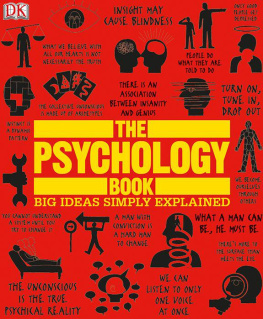
Psychology for Actors
Psychology for Actors is a study of modern psychology, specifically designed for the working actor and actor-in-training, that covers discrete areas of psychological theory that actors can apply to their creative process to form and connect with characters. The book investigates many post-Stanislavsky ideas about human psychology from some of the twentieth centurys most brilliant mindsfrom Sigmund Freud and Carl Jung to Abraham Maslow and Ken Wilberand offers step-by-step exercises to help actors understand their characters and effectively bring them to life on stage or in front of the camera. Psychology for Actors also offers advice on how to cope with the stresses and strains of a highly competitive field, and provides tools for deeper self-awareness and character exploration.
Kevin Page is a seasoned professional actor/writer/theorist with a background in psychology, meditation practices, and consciousness research. He is the author of Advanced Consciousness Training for Actors (Routledge, 2018). For more information, please visit www.kevinpage.com .
Psychology for
Actors
Theories and Practices
for the Acting Process
Kevin Page

First published 2019
by Routledge
711 Third Avenue, New York, NY 10017
and by Routledge
2 Park Square, Milton Park, Abingdon, Oxon, OX14 4RN
Routledge is an imprint of the Taylor & Francis Group, an informa business
2019 Kevin Page
The right of Kevin Page to be identified as author of this work has been asserted by him in accordance with sections 77 and 78 of the Copyright, Designs and Patents Act 1988.
All rights reserved. No part of this book may be reprinted or reproduced or utilised in any form or by any electronic, mechanical, or other means, now known or hereafter invented, including photocopying and recording, or in any information storage or retrieval system, without permission in writing from the publishers.
Trademark notice : Product or corporate names may be trademarks or registered trademarks, and are used only for identification and explanation without intent to infringe.
Library of Congress Cataloging-in-Publication Data
Names: Page, Kevin, 1958- author.
Title: Psychology for actors : theories and practices for the acting process / Kevin Page.
Description: New York, NY : Routledge, 2019. | Includes bibliographical references.
Identifiers: LCCN 2018014702| ISBN 9780815352259 (hardback : alk. paper) | ISBN 9780815352266 (paperback : alk. paper) | ISBN 9781351130950 (ebook)
Subjects: LCSH: ActingPsychological aspects. | Psychology.
Classification: LCC PN2071.P78 P347 2019 | DDC 792.02/8019dc23
LC record available at https://lccn.loc.gov/2018014702
ISBN: 978-0-8153-5225-9 (hbk)
ISBN: 978-0-8153-5226-6 (pbk)
ISBN: 978-1-351-13095-0 (ebk)
Typeset in Giovanni
by Swales & Willis Ltd, Exeter, Devon, UK
For my father, Dr. Monte M. Page, who both gave and saved my life.
Thanks, Daddy...
As with any book that endeavors to break fresh ground, Psychology for Actors was made stronger and more complete by the contributions of several individuals and institutions. I cannot thank them enough, but I can acknowledge their assistance and generosity in making this effort possible.
First, to my multiple mentors in both psychology and acting. I would like to thank and acknowledge, in particular, the following individuals and institutions. In no particular order: James Fadiman and Robert Frager, both, at one time or another, from the Institute of Transpersonal Psychology. Ken Wilber of the Integral Institute (and the Red Rooster Restaurant... ). Kevin Paul Hofeditz, who first taught me movement for the stage and is now teaching me movement for academia.
My fearless editor at Routledge, Stacey Walker, and our wonderful editorial assistant, Lucia Accorsi.
Hillevi Ruumet, for guidance and editorial help with the psychology material.
Richard Feldman from the Julliard School. And the numerous master acting teachers I interviewed during 2017 that pointed out the need for a book such as this: Rhonda Blair, Jack Greenman, and Blake Hackler, all from SMU Meadows School of the Arts. Lucy Skilbeck, Director of Actor Training at the Royal Academy of Dramatic Art (RADA). Kristin Linklater, master voice teacher and author of Freeing the Natural Voice , as well as the Founder and Director of the Kristin Linklater Voice Centre in Orkney, Scotland. Catherine Fitzmaurice, creator of Fitzmaurice Voicework and Saul Kotzubei, who, in addition to being Catherines son, also runs the Fitzmaurice Institute. Phillip Zarrilli, master acting teacher and cultivator of consciousness. Scott Illingworth and Mark Wing-Davey, Theatre Department Chair and Arts Professor at NYUs Tisch School of the Arts. Sharon M. Carnicke, author of Stanislavsky in Focus: An Acting Master for the Twenty-First Century (2nd ed., Routledge, 2009), Natsuko Ohama, and preeminent actor David Warshofsky, all from the USC School of Dramatic Arts. Barbara Marchant and Danielle Liccardo-Massood from Rutgers Mason Gross School of the Arts. Tony McKay of Carnegie Mellon University. Melissa Smith, Conservatory Director of the American Conservatory Theater. Josh Foldy from North Carolina School of the Arts. Peter Zazzali, Assistant Professor and Artistic Director of Kansas Repertory Theatre at the University of Kansas. R. Andrew White, Professor of Theatre at Valparaiso University. John Lutterbie and Amy Cook from Stony Brook University. Neal Utterback from Juniata College. Rick Kemp, Head of Acting and Directing at Indiana University of Pennsylvania and author of the awesome Embodied Acting: What Neuroscience Tells Us About Performance (Routledge, 2012).
A special thanks to the many authors, theorists, and publishers who have allowed me to quote from their copyrighted work in building my own case (parenthetical dates represent year of copyright notice):
Carnicke, S. M. (2009). Stanislavsky in Focus: An Acting Master for the Twenty-First Century (2nd ed.). London/New York: Routledge. Reprinted with permission of Routledge.
Erikson, E. H. (1964). Childhood and Society (2nd ed.). New York: W. W. Norton & Co. Reprinted with permission of W. W. Norton & Co.
Frager, R., & Fadiman, J. (2005). Personality and Personal Growth (6th ed.). New York: Pearson Education. Reprinted by permission of Pearson Education, Inc.
Gurung, R. A. R., Hackathorn, J., Enns, C., Frantz, S., Cacioppo, J. T., Loop, T., & Freeman, J. E. (2016). Strengthening introductory psychology: a new model for teaching the introductory course. American Psychologist , 71(2), 112124. doi:10.1037/a0040012
Horney, K. (1939). New Ways in Psychoanalysis . New York: W. W. Norton & Co. Reprinted by permission of W. W. Norton & Co.
Jung, C. G., Excerpt(s) from Memories, Dreams, Reflections , translated by Richard and Clara Winston, edited by Aniela Jaffe, translation copyright 1961, 1962, 1963 and renewed 1989, 1990, 1991 by Penguin Random House LLC. Used by permission of Pantheon Books, an imprint of the Knopf Doubleday Publishing Group, a division of Penguin Random House LLC. All rights reserved.
Jung, C. G., & Shamdasani, S. (2009). The Red Book: Liber Novus . New York: W.W. Norton & Co. Reprinted by permission of W. W. Norton & Co.
Maslow, A. H., & Frager, R. (1987). Motivation and Personality (3rd ed.). New York: Harper & Row. 1954, 1987 by Harper & Row, Publishers, Inc.; Reprinted by permission of Pearson Education, Inc.
Maslow, A. H., & Frager, R. (1970). Motivation and Personality (2nd ed.). New York: Harper & Row. 1954 by Harper & Row, Publishers, Inc., 1970 by Abraham H. Maslow; Reprinted by permission of Pearson Education, Inc.
Next page
